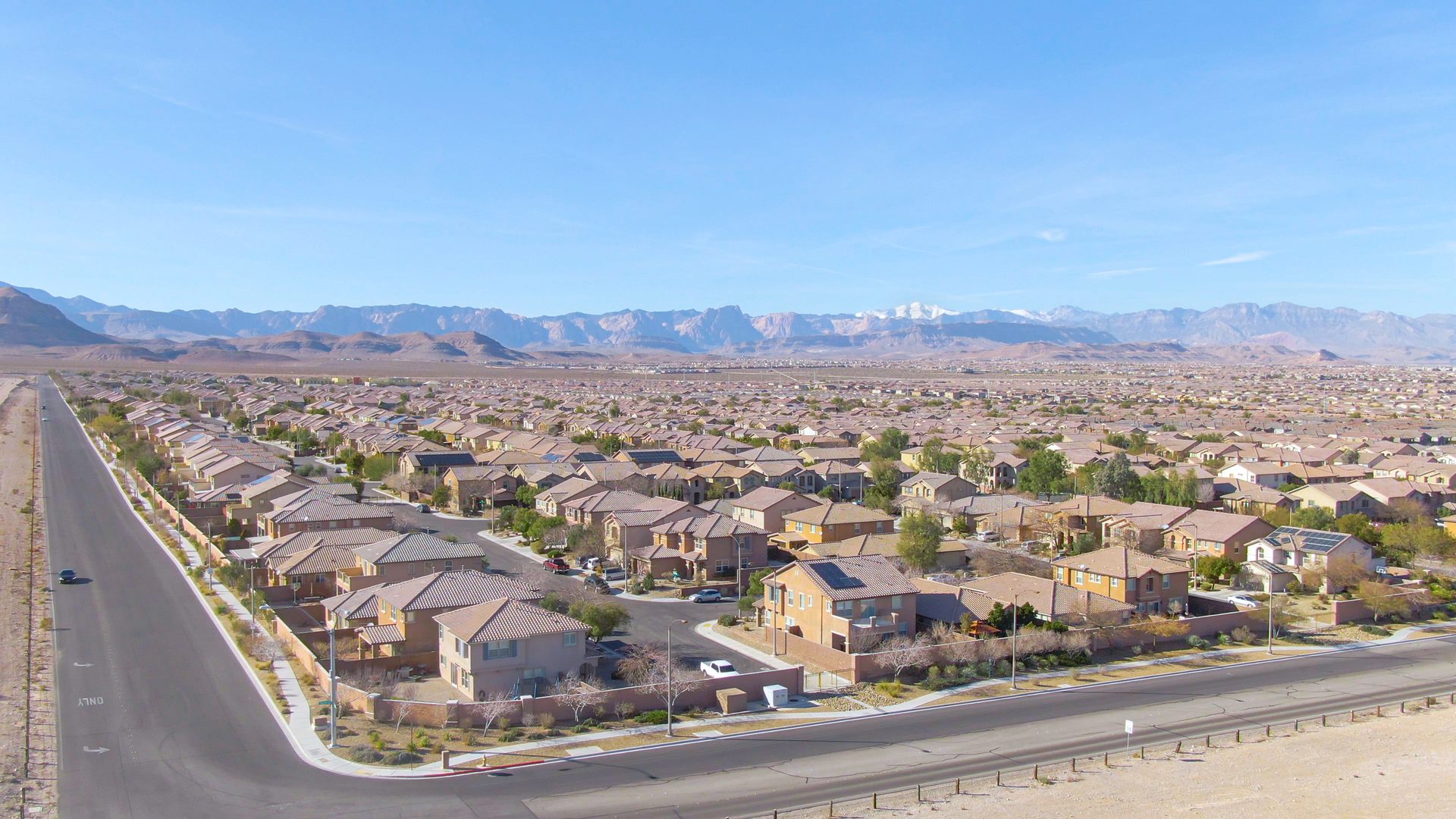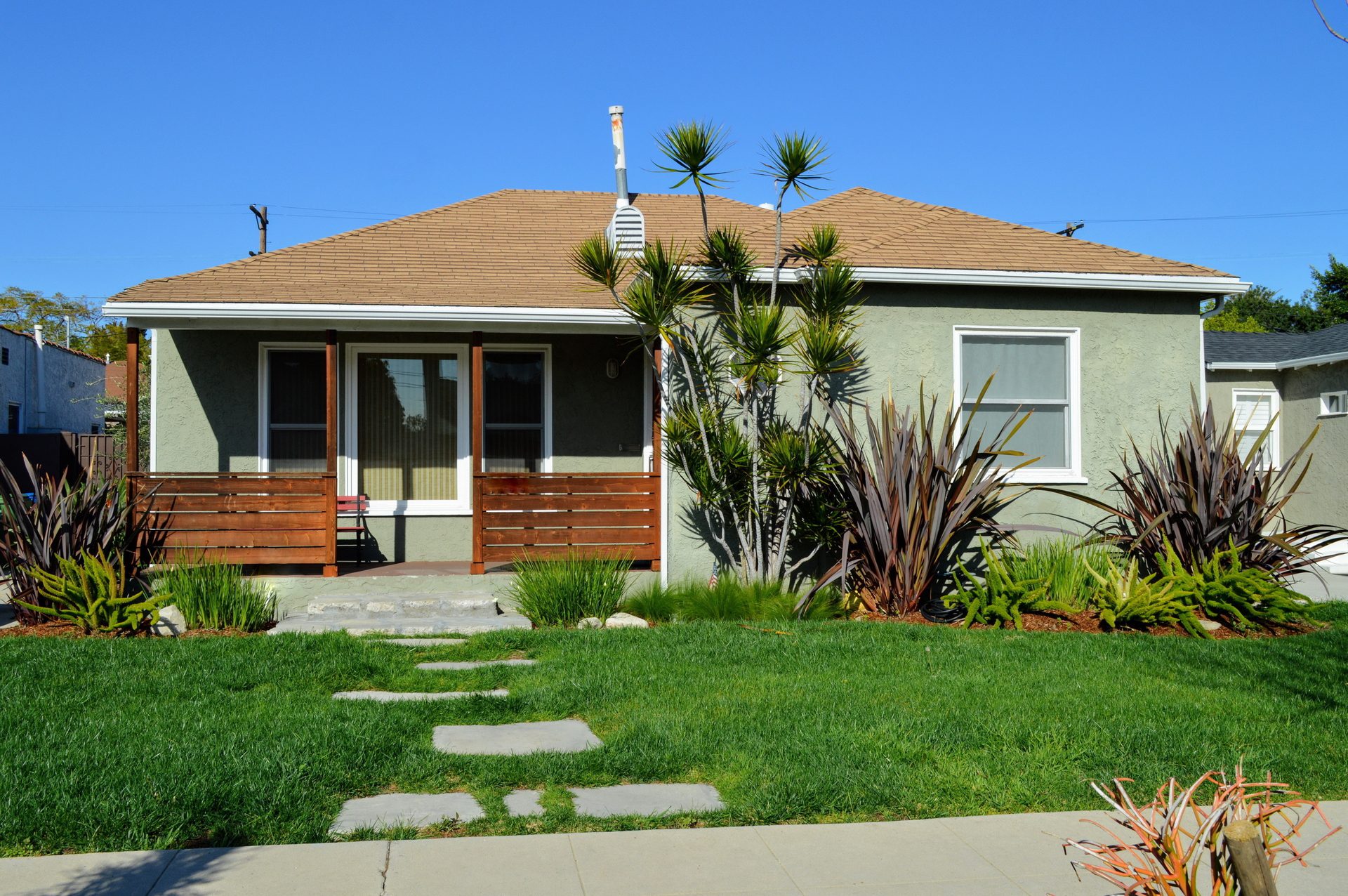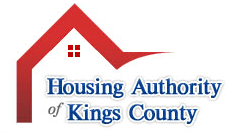Housing Choice Voucher Program in Kings County, CA
The Housing Authority of Kings County wants to make it easier for low-income families to be able to afford safe, sanitary housing. One of the ways we accomplish this goal is through our Housing Choice Voucher Program in Kings County, CA. Below you will find information for landlords and HCV participants to ensure everybody is able to come together to achieve our housing goals.
Information for Landlords
With our Housing Choice Voucher Program, everyone wins. Not only do low-income families find quality homes with affordable rent, but owners are able to fill vacant units with tenants under an initial one-year contract. Since the tenants’ rents are affordable, there is less likelihood that the landlord will need to evict participants for non-payment of rent. Even better, the local economy is helped by the infusion of money into the community.

Allow the Housing Authority to Assist You in Marketing Your Rentals
The Housing Authority of Kings County maintains a list of landlords who are willing to accept HCV participants. The referral list is provided to individuals and families who receive housing choice vouchers. If you would like to be listed on the referral list, please contact us at (559) 582-3120.
Owner Responsibilities
Screening – The Housing Authority does not screen participants for suitability as renters. Owners should perform their standard landlord reference checks, credit reviews, etc. If known, we can only supply owners with the current and previous applicant address and landlord information.
Non-Discrimination – The landlord must comply with fair housing laws and not discriminate against any family.
Unit Maintenance – The rental unit must be maintained in a safe, decent, and sanitary condition. Repairs must be made in a timely manner. For more information about inspections, click here.
Lease Enforcement – The owner manages their own property. They collect the rent due from the tenant and enforce compliance with the lease. During the first year of the lease, the owner may terminate tenancy only for a good cause, such as non-payment of the tenant’s share of the rent or other severe or repeated violations of the terms and conditions of the lease. At the end of the initial term of the lease, the landlord may decline to renew the contract without specifying a cause.
Compliance with the HAP Contract – The owner must comply with the Housing Assistance Payments Contract terms and cooperate with the Housing Authority.
Housing Choice Voucher Inspections
Each unit must pass at least one inspection on an annual basis. Required inspections include:

Initial Inspection
An initial inspection of the rental unit will be conducted within 15 days of receipt of the lease-up paperwork if the unit is available. If the unit does not pass inspection, a list of required repairs will be provided to the landlord. Once the repairs have been made, the inspector will re-inspect the unit to verify that it now meets housing quality standards.
Annual Inspection
Inspections will be conducted at least annually for participants remaining in the rental unit beyond the initial first year. This free inspection allows the owner to know how well the tenant is caring for the unit. Both the landlord and the tenant benefit from maintaining the dwelling in a safe, decent, and sanitary condition.
During the annual inspection, the inspector will determine if repairs are the responsibility of either the landlord or the tenant.
The family is responsible for correcting failures caused by non-payment of utilities for which the family is responsible for paying, for failure to provide and maintain appliances the owner does not provide under the lease, and for damages beyond normal wear and tear caused by household members or guests.
The owner is responsible for failure or damage caused by normal wear and tear.
The landlord and tenant will be provided with a list of required repairs. Each party will have 24 hours for emergency repairs and 30 days to complete non-emergency items and to contact the Housing Authority for a re-inspection. If a re-inspection does not pass within that time period or any extension, the following action(s) will be taken:
- For tenant responsibility failures, termination of the participant’s rental assistance. This places responsibility on residents to minimize and repair damages above normal wear and tear that they cause to the rental unit in order to keep their rental assistance.
- For landlord responsibility failures, abatement of the rental assistance payment from the Housing Authority until either the unit passes re-inspection, or the Housing Assistance Payments Contract is terminated. Abatement means the Housing Authority’s share of the rent is not paid to the owner at all since the unit does not meet minimum housing quality standards as required by the contract. The tenant is not responsible for paying that portion of the rent and may not be evicted for non-payment of the Housing Authority’s share.
- For failures that are both landlord and tenant responsibility, abatement of the rental assistance payment to the owner and termination of the participant’s rental assistance.
Other Inspections
Special inspections may also be performed during the year in response to complaints. A supervisory quality control inspection may be done in order to ensure inspections are performed accurately and consistently among inspectors.
Frequent Inspection Fail Items
Owners are strongly encouraged to repair items before scheduling an inspection so that the unit passes the first time. Particular attention should be given to the following common fail items, including:
Ceiling – Repair any cracked plaster or holes. Repair water damage and correct the source of leakage.
Doors/Cabinets – Missing doors, knobs, locks, stops, and loose or missing thresholds must be repaired or replaced. Sliding closet doors must have guides.
Electric – A 100-amp meter panel is required—70 amps in integrated panels. Fixtures that are present must work. Broken outlet cover plates must be replaced, and exposed wire must be covered. Hood fan wiring and wiring below eight feet must be guarded or enclosed. Light fixtures must have bulbs and covers. There must be a working exhaust fan in a bathroom without a window. The unit must have a cooling system and a heater.
Floors – Torn, damaged, cracked, or missing tiles/linoleum must be repaired/replaced. The carpeting should be clean. Torn, damaged, or severely worn carpeting must be replaced.
Garage – The garage door must open and close properly. The landlord must not store any of their personal items in the unit.
Garbage/Debris/Vegetation – The unit and yard must be free of heavy accumulation of debris and garbage, such as piles of trash, discarded furniture, etc. The unit must contain adequate facilities for food waste disposal (covered trash cans, dumpsters, etc.). Trees and grass must not have contact with the unit.
Handrails – Handrails are required for flights of four or more stairs and must not be broken or cracked.
Locks – as required by California law, each entrance door (other than a sliding glass door) must be equipped with a deadbolt lock. Interior doors may only have privacy locks.
Plumbing & Fixtures – Repair leaking faucets and clogged drains. Repair/seal chipped porcelain on sinks, basins, and tubs. Install tub and basin stoppers.
Refrigerator – If the owner provides the refrigerator, it must be clean, with no missing or broken shelves or kickplate, and must be in operating condition.
Screens – Screens must be present on all windows and be in good condition.
Smoke Detector – Each living level must have at least one working smoke detector.
Stoves – Oven doors and stove burners must operate properly, and the stove knobs must be in place. Gas stoves must be connected to a flex house. A hand-controlled gas cut-off valve must be provided. An overhead exhaust fan is required.
Utilities – The utilities must be on so the inspector can determine whether the appliances and electrical components are functioning properly.
Walls – Repair holes and peeling, cracking, or blistering paint on the interior and exterior of the unit. Repair or install baseboard molding when gaps between the wall and the floor exist.
Water Heater- The water heater must have a pressure relief valve, an extension to within 6” of the floor, and a hand-controlled gas cut-off valve. Ventilation must be provided. All combustibles must be removed to at least seven feet away from the water heater.
Windows – Repair/replace cracked, broken, missing, and boarded-up windows. Windows must operate properly and be able to be locked.
Fair Market Rents, UA’s, Etc.
| Fair Market Rents | |
|---|---|
| Effective October 1, 2024 | |
| Bedroom Size | Fair Market Rent |
| 0 Bedroom | $ 1,151.00 |
| 1 Bedroom | $ 1,158.00 |
| 2 Bedrooms | $ 1,445.00 |
| 3 Bedrooms | $ 2,025.00 |
| 4 Bedrooms | $ 2,427.00 |
| 5 Bedrooms | $ 2,791.00 |
| 6 Bedrooms | $ 3,155.00 |
| Payment Standards - 120% of Fair Market Rents | |
|---|---|
| Effective January 1, 2025 | |
| Bedroom Size | Payment Standard |
| 0 Bedroom | $ 1,266 |
| 1 Bedroom | $ 1,274 |
| 2 Bedrooms | $ 1,590 |
| 3 Bedrooms | $ 2,228 |
| 4 Bedrooms | $ 2,670 |
| 5 Bedrooms | $ 3,070 |
| 6 Bedrooms | $ 3,471 |
| Housing Choice Voucher Utility Allowances for Single-Family Homes | |||||||
|---|---|---|---|---|---|---|---|
| Effective July 1, 2024 | |||||||
| Utility | Type | 0BR | 1BR | 2BR | 3BR | 4BR | 5BR |
| Heating | Natural Gas | 16 | 20 | 25 | 30 | 36 | 46 |
| Oil/Electric | 65 | 85 | 108 | 130 | 155 | 196 | |
| Electric - Heat Pump | 33 | 43 | 54 | 65 | 78 | 98 | |
| Cooking | Natural Gas | 4 | 5 | 7 | 8 | 8 | 9 |
| Oil/Electric | 14 | 18 | 22 | 25 | 28 | 31 | |
| Other Electric | 34 | 45 | 57 | 69 | 80 | 94 | |
| A/C | 49 | 52 | 61 | 70 | 80 | 89 | |
| Water Heating | Natural Gas | 11 | 15 | 19 | 26 | 34 | 42 |
| Oil/Electric | 26 | 44 | 61 | 97 | 133 | 168 | |
| Water | 35 | 36 | 38 | 41 | 48 | 56 | |
| Sewer | 31 | 31 | 31 | 31 | 31 | 31 | |
| Trash | 31 | 31 | 31 | 31 | 31 | 31 | |
| Range/Microwave | 4 | 4 | 4 | 4 | 4 | 4 | |
| Refrigerator | 6 | 6 | 6 | 6 | 6 | 6 |
| Housing Choice Voucher Utility Allowances for Multi-Family Housing | |||||||
|---|---|---|---|---|---|---|---|
| Effective July 1, 2024 | |||||||
| Utility | Type | 0BR | 1BR | 2BR | 3BR | 4BR | 5BR |
| Heating | Natural Gas | 12 | 16 | 20 | 24 | 29 | 37 |
| Oil/Electric | 50 | 66 | 84 | 101 | 122 | 158 | |
| Electric - Heat Pump | 25 | 33 | 42 | 50 | 61 | 79 | |
| Cooking | Natural Gas | 4 | 5 | 7 | 8 | 8 | 9 |
| Oil/Electric | 14 | 18 | 22 | 25 | 28 | 31 | |
| Other Electric | 34 | 45 | 57 | 69 | 80 | 94 | |
| A/C | 41 | 43 | 51 | 59 | 66 | 74 | |
| Water Heating | Natural Gas | 11 | 15 | 19 | 26 | 34 | 42 |
| Oil/Electric | 26 | 44 | 61 | 97 | 133 | 168 | |
| Water | 35 | 36 | 38 | 41 | 48 | 56 | |
| Sewer | 31 | 31 | 31 | 31 | 31 | 31 | |
| Trash | 31 | 31 | 31 | 31 | 31 | 31 | |
| Range/Microwave | 4 | 4 | 4 | 4 | 4 | 4 | |
| Refrigerator | 6 | 6 | 6 | 6 | 6 | 6 |
Frequently Asked Questions
Do you have emergency assistance?
No, the Housing Authority does not have emergency assistance. The agency provides long-term affordable rental housing. However, the management offices can provide emergency assistance referrals to you/
What is the difference between Section 8 and Managed Units?
The Section 8, or Housing Choice Voucher Program, assists participants by paying private landlords a portion of the total rent. Qualified participants may transfer their rental assistance to other areas of the country. Managed Units are specific developments owned and/or managed by the Housing Authority.
How long is the wait? Where am I on the waiting list?
The Housing Authority does not provide your position on the waiting list because it may change frequently. You may move up on the list as people are taken off of it, and you may move down on the list if applicants with preferences apply. In addition, the Housing Authority may skip over others to reach you or skip over you to reach other applicants in order to comply with income-targeting regulations. The wait ranges from about 9 months to 3 years.
What is a preference?
A preference means the family is not placed at the bottom of the waiting list but is placed at the top behind preference holders who applied earlier. Applicants who are veterans of the U.S. Military receive a preference on the waiting list in accordance with California law. Individuals/families displaced by governmental action and families whose head and/or spouse are elderly, or disabled are also given a preference.
What is income targeting?
Unless a waiver is granted by HUD, during each fiscal year, at least 75% of families admitted to the Housing Choice Voucher Program must have incomes that do not exceed 30% of the area median income (please see our Income Limits PDF for more information). If necessary, the Housing Authority must skip over families on the waiting list to maintain the required admission percentage.
How old do I have to be to get housing?
You must be 18 or older or be legally considered emancipated.
I have a disability that requires me to use a wheelchair. Are there any accessible apartments for rent?
Yes. To assist in your search, the Housing Authority’s Landlord Referral List indicates landlords with accessible housing.
How do I obtain a copy of the Tenant Grievance Procedure?
You can submit a written request by email to hakc@hakc.com or by fax to (559) 582-8471.
You can also request a copy in person at any Housing Authority office. There is a cost of $0.25
per page for paper copies.How do I obtain a copy of the Limited English Proficiency ("LEP") plan?
You can submit a written request via email to hakc@hakc.com or by fax to (559) 582-8471.
You can also request a copy in person at any Housing Authority office. There is a cost of $0.25
per page for paper copies.What number do I call for an emergency after business hours?
(559) 582-3120
How can I pay rent?
You can pay rent by mail, in person at any Housing Authority office, or by dropbox located at
each Housing Authority Office.How can I contact the Housing Authority via email?
You can email us at hakc@hakc.com.
Can I request an interpreter if I do not speak English?
Yes, you can request a free interpreter by speaking with Housing Authority staff in person or
by phone, or by emailing us at hakc@hakc.com.

